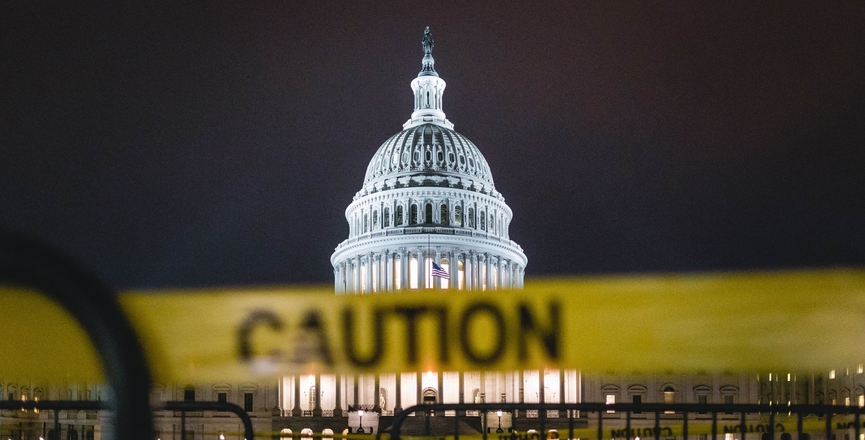Does anyone recall the Reform Party of Canada’s campaign starting in the late 1980s to impose on our country a “triple-e Senate” — that is to say elected, effective, and, above all, “equal”?
Pushed by the likes of Calgary-area farmer Bert Brown and would-be philosopher king Preston Manning, this call for institutional reform based on the supposedly more democratic model of the United States caught the imaginations of perpetual complainers on the Prairies, although it never gained much traction elsewhere in Canada.
Its most enthusiastic supporters never paid much heed to the warnings of constitutional experts about the dangers of such a scheme from the United States’ slavery-era constitution, and it became an article of faith in Alberta that like the false narrative about the National Energy Program lingers to this day.
Brown, who famously plowed “Triple E Senate or Else” into his field on the flight path to Calgary’s airport, died in 2018, but not before he got to spend 2007 to 2013 as an unelected Canadian senator courtesy of then-Conservative prime minister Stephen Harper.
Manning, the closest thing you could be to a lifelong professional politician in Canada without quite making the cut, led the Reform party from 1987 to 2000, and was the leader of the Opposition in Parliament from 1997 to 2000. Manning has only just retired, but he haunts us just the same.
Not so well understood nowadays is the role that agitation for a “regional fairness criterion,” as Harper described the triple-e Senate at the Reform party’s founding assembly in Winnipeg in November 1987, played in the transformation of Canada’s conservative movement into an extremist doppelgänger of the U.S. Republican party.
Indeed, arguably that was the main purpose of the whole Canadian triple-e scheme, since the people pushing it knew perfectly well it stood no chance of gaining popular or institutional support outside the Prairies.
As Darren Loucaides explained in The Guardian on Thursday, “The party’s argument was framed around the need for reform of institutions such as Canada’s Senate.” But “the goal was to derail the socially liberal direction of the Conservatives, and push sweeping tax cuts, tougher law-and-order policies and more direct democracy through referendums, as well as opposing multiculturalism.”
That goal was eventually largely achieved, resulting in the hostile reverse takeover of the Canadian Progressive Conservatives by the Reform party in 2003, giving us the outfit we now know as the Conservative Party of Canada.
Indeed, this gambit was so successful in Canada that Brexit party founder Nigel Farage — a speaker at Manning’s annual right-wing clambake in Ottawa in 2013 and on the campaign trail for U.S. Republican loser Donald Trump much more recently — is now applying to change the name of his party to Reform U.K.
Now that Brexit is a disastrous reality, what will become an easy-to-grasp issue around which the unsavoury Farage will rally his radical-right supporters for an eventual reverse takeover of the British Conservative party? You guessed it: Reform of the House of Lords!
And Harper, former prime minister of Canada and puppet master of the Alberta provincial government, waits in the shadows, now leader of the misnamed International Democratic Union, the Internationale of the neoliberal right, to assist Farage in his latest anti-democratic endeavour.
The goal of that British campaign would be the same as the goal of the Canadian Senate reform effort in the 1980s and 1990s — which remains on life support in the political intensive care unit known as Alberta. And, yes, we’ll have yet another unconstitutional and needless “Senate nominee” election next year.
To wit: To bring the disaster of the U.S. Senate to new countries, creating as in the United States a permanent institutionalized edge for social conservative and neoliberal parties based on support from underpopulated rural regions of their countries.
The past week has demonstrated clearly to the whole world just how well this “democratic reform” would actually work.
In the best-case scenario once the dust from last week’s presidential and congressional elections in the United States has settled, the U.S. Senate, an institution created in the 18th century specifically to thwart popular democracy, will have a 50-50 split between Democratic and Republican party senators.
They will have been put there by 45 million Democratic votes and only 33 million Republican votes! The equality in a triple-e Senate, in other words, is only among regions, and is preposterously skewed against the democratic ideal of one person, one vote.
This is by design, based on the American founding fathers’ profound distrust of popular democracy. It was for the same reason that the founders created the electoral college to choose the victors of presidential elections.
In other words, the conservative bias of the U.S. Constitution — which has arguably already led to one bloody civil war in that country — is a feature, not a bug.
Obviously, Canada doesn’t need or want a triple-e Senate. The United States, moreover, desperately needs Senate reform.
Just like Canada, for slightly different reasons, our American cousins need a triple-a Senate:
Abolish, Abolish, Abolish!
David Climenhaga, author of the Alberta Diary blog, is a journalist, author, journalism teacher, poet and trade union communicator who has worked in senior writing and editing positions at The Globe and Mail and the Calgary Herald.
Image: Andy Feliciotti/Unsplash



